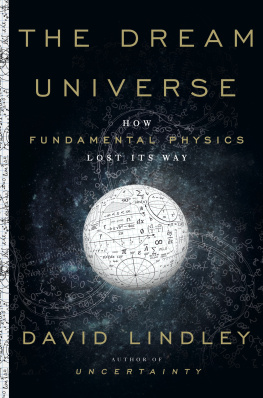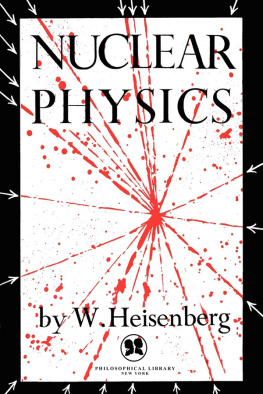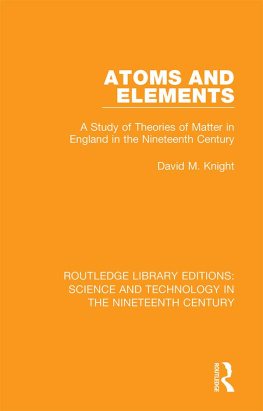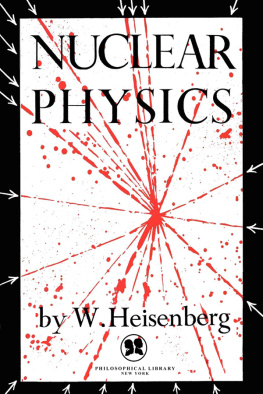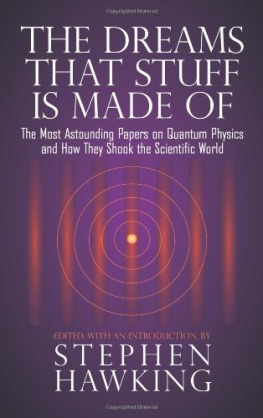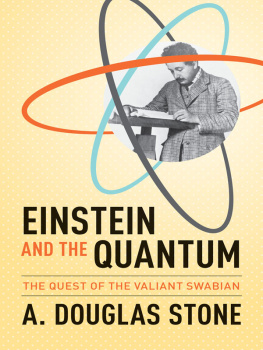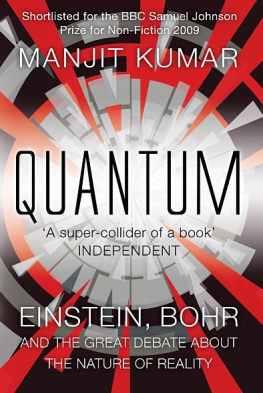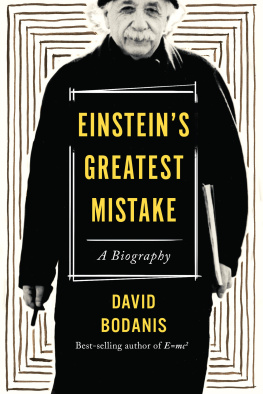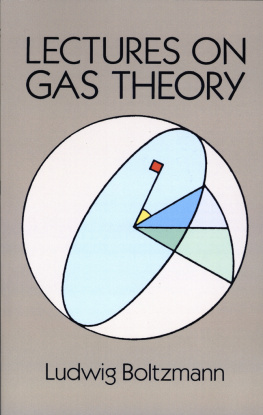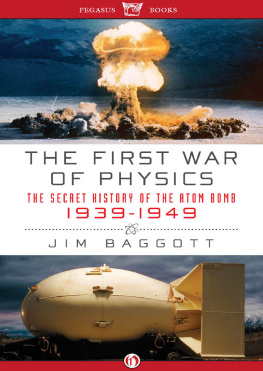Thank you for downloading this Free Press eBook.
Join our mailing list and get updates on new releases, deals, bonus content and other great books from Free Press and Simon & Schuster.
C LICK H ERE T O S IGN U P
or visit us online to sign up at
eBookNews.SimonandSchuster.com
We hope you enjoyed reading this Free Press eBook.
Join our mailing list and get updates on new releases, deals, bonus content and other great books from Free Press and Simon & Schuster.
C LICK H ERE T O S IGN U P
or visit us online to sign up at
eBookNews.SimonandSchuster.com
ALSO BY DAVID LINDLEY
The End of Physics
Where Does the Weirdness Go?
The Science of Jurassic Park (with Rob DeSalle)

THE FREE PRESS
A Division of Simon & Schuster, Inc.
1230 Avenue of the Americas
New York, NY 10020
www.SimonandSchuster.com
Copyright 2001 by David Lindley
All rights reserved, including the right of reproduction in whole or in part in any form.
T HE F REE P RESS and colophon are trademarks of Simon & Schuster, Inc.
Designed by Gabriel Levine
Library of Congress Cataloging-in-Publication Data Is Available
Lindley, David
Boltzmans atom : the great debate that launched a revolution in physics / David Lindley.
p. cm.
Includes bibliographical references and index.
1. Boltzmann, Ludwig, 18441906. 2. PhysicistsAustriaBiography. 3. Atomic theoryHistory19th century. I. Title.
QC16.B64 L56 2001
530'.092dc21
[B]00-32167
ISBN 0-684-85186-5
ISBN 978-1-5011-4267-3 (eBook)
Contents
Introduction
I DONT BELIEVE THAT ATOMS exist!
As recently as the waning years of the 19th century, a respected physicist and philosopher could make that statement before an audience of his colleagues and expect to be met not with derision or ridicule but with thoughtful consideration. Many scientists at the time subscribed to the idea that all matter was made up of tiny, elemental particles called atoms, but their arguments were as yet circumstantial. No one could say exactly what an atom was. For such reasons, critics maintained that atoms were no more than clever speculation, unworthy of scientific consideration.
This blunt declaration of disbelief came, in fact, in January 1897 at a meeting of the Imperial Academy of Sciences in Vienna. The skeptic was Ernst Mach, not quite 60 years old, who had been for many years a professor of physics at the University of Prague and who was now a professor of the history and philosophy of science in Vienna. He pronounced his uncompromising opinion in the discussion following a lecture delivered by Ludwig Boltzmann, a theoretical physicist. Boltzmann, a few years younger than Mach, had likewise recently returned to Vienna after many years at other universities in Austria and Germany. He was an unabashed believer in the atomic hypothesisindeed, his lifes work had centered on that single theme.
Nowadays atoms are uncontroversial. Scientists have proved not only that they exist, but that they are made of still smaller objects. An atom is a cloud of electrons swirling around a dense nucleus; the nucleus contains protons and neutrons; inside them are quarks. Quarks, in all likelihood, are not truly fundamental particles but manifestations of some still more elementary theoretical structure.
It seems today unremarkable, indeed a matter of course, that theoretical physicists striving to understand the fundamental nature of the world should deal in esoteric ideas and strange objects far removed from the world around us. But it was not always so. Well into the latter half of the 19th century, most scientists saw their essential task as the measurement and codification of phenomena they could investigate directly: the passage of sound waves through air, the expansion of gas when heated, the conversion of heat to motive power in a steam engine. A scientific law was a quantitative relationship between one observable phenomenon and another.
But there came a time when, to understand more deeply, a few scientists found themselves impelled to dig deeper, to probe beyond surface appearances. Ludwig Boltzmann was such a pioneer. He understood before most of his contemporaries that if he pictured a gas as a lively collection of atoms, he could explain many of its properties. The atoms incessant motion would produce the properties recognized as temperature and pressure. Instead of merely observing and recording that a heated gas expands, he could say why it would expand, and by how much. By understanding the behavior of atoms, he could understand the ability of hot gas to push on a piston, as in a steam engine, and turn its energy into mechanical work.
In his lifelong pursuit of this new atomic perspective, moreover, Boltzmann introduced wholly new theoretical concepts into physics. Because atoms are so numerous, and their motion so varied, he had to use techniques of statistics and probability to depict their collective activities. Although atoms move in fundamentally random ways, Boltzmann found he could nonetheless make accurate predictions of their collective effects; he proved that the disorderly actions of individual atoms could give rise to orderly behavior in bulk. He showed that laws of physics could be built on a foundation of probability, and yet still be reliable. To an audience of physicists raised in the belief that scientific laws ought to encapsulate absolute certainties and unerring rules, these were profound and disturbing changes.
In 19th-century Europe, not every scientist saw such novelties as developments to be cheered. Boltzmann encountered opposition. Many of his fellow physicists did not believe that his goals were worthwhile, or even qualified as science. They had measured the expansion of gases and could write down a simple law relating temperature, pressure, and volume. Boltzmanns alleged atoms, by contrast, were invisible, intangible, and imperceptible. What was the point of explaining a straightforward law, derived directly from experiment, in terms of hypothetical entities that could not be seen and might never be seen? This was why Ernst Mach proclaimed that he didnt believe that atoms existed.
Belief, in the context of a scientific debate, may seem an odd word. Is not science a matter of proof and reason, logic and fact? Atoms, surely, either exist or they do not. Where does belief come into it?
Nevertheless, Mach used that word particularly, and he meant it. Scientific certainty is achieved only graduallysome would say never. When ideas are new and theories tentative, scientists do not and cannot have proof that they are on the right track. They generate hypotheses (a fancy word for guesses) and try to follow where their insight and imagination lead them. But rarely does a scientific hypothesisat least, not a useful or an interesting oneadmit of a straightforward up-or-down, yes-or-no verdict. Valuable hypotheses survive the test of time in countless engagements with reality. The war against ignorance is a war of attrition.
In the meantime, scientists have to keep the faith. They pursue their chosen hypotheses because they believe they are moving forward.
Boltzmanns pursuit of the atomic hypothesis sprang from just such a belief. By explaining a wide variety of the properties of gases from a single starting point, he believed he was providing a new and powerful form of understanding. Mach thought otherwise. He did not doubt Boltzmanns acuity of mind or ingenuity with theories. He just didnt see the point of all that theorizing. And he evolved a philosophy to bolster his beliefs. Science ought to stick to what it can measure directly, and theories ought to restrict themselves to specifying exact relationships between those measured phenomena. Put some energy into a gas, heat it up, and it expands. The rules for such changes had been found out and established years before. Nothing further need be said.
Next page

